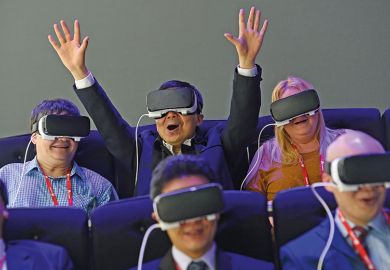Playing video games could help students to develop graduate-level skills, a new study claims.
In a trial at the University of Glasgow, undergraduates studying arts and humanities subjects were asked to play computer games under controlled conditions to assess the impact on communication and mental adaptability levels.
Students logged a total of 14 hours over an eight-week trial period on games such as Borderlands 2, Minecraft, Lara Croft and the Guardian of Light and Warcraft III: Reign of Chaos, playing most games for at least two hours.
Those who played computer games showed improvements in communication, adaptability and resourcefulness scales compared with a control group who did not, says the study, titled “Video games can develop graduate skills in higher education students: A randomised trial”, which is published in the journal Computers & Education.
“My research is perhaps what every parent may or, in the case of some, may not like to hear,” said Matthew Barr, a lecturer in information studies at Glasgow, who led the research.
“This work demonstrates that playing commercial video games can have a positive effect on communication ability, adaptability and resourcefulness in adult learners, suggesting that video games may have a role to play in higher education,” he added.
The results may reflect the fact that “modern video games often require players to be adaptable and resourceful, and finding multiple ways of accomplishing a task”, said Mr Barr, who added that “the way games are designed often encourages critical thinking and reflective learning, commonly cited as desirable attributes in graduates”.
The game labs operated on a drop-in basis, open for students to come and play the specified games between the hours of 9am and 5pm every Tuesday, Wednesday and Friday. Time management was the students’ responsibility, meaning they could choose to play for “just five minutes more” or leave when they had a class to attend.
“The study also suggests that graduate skills may be improved in a relatively short amount of time, with the gains reported here achieved over a period of eight weeks and representing just 14 hours of game play,” said Mr Barr.
The popular discourse around “games’ alleged ill effects should be tempered by considerations of the potential positive outcomes of playing video games”, he added.
Register to continue
Why register?
- Registration is free and only takes a moment
- Once registered, you can read 3 articles a month
- Sign up for our newsletter
Subscribe
Or subscribe for unlimited access to:
- Unlimited access to news, views, insights & reviews
- Digital editions
- Digital access to THE’s university and college rankings analysis
Already registered or a current subscriber?








